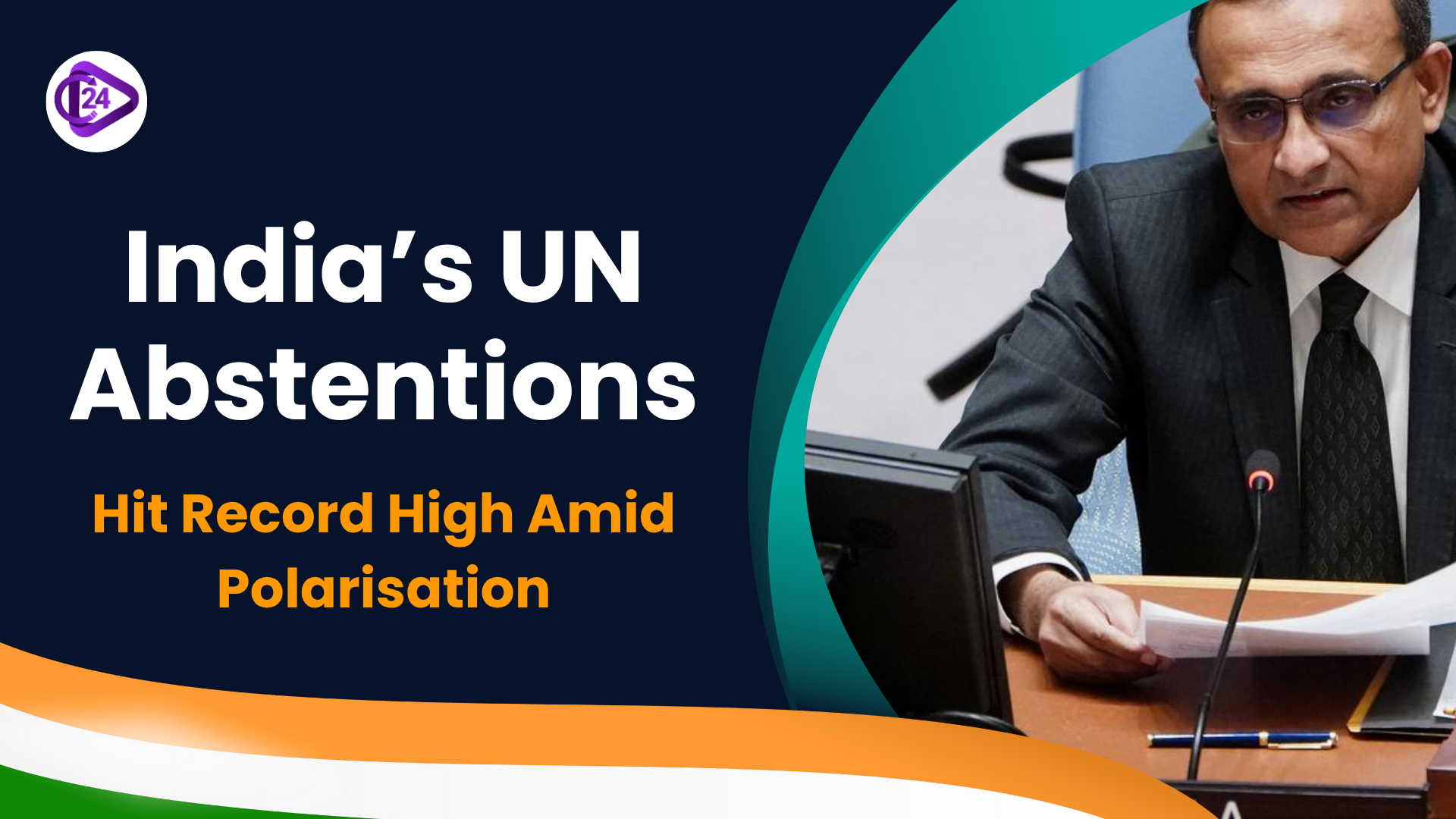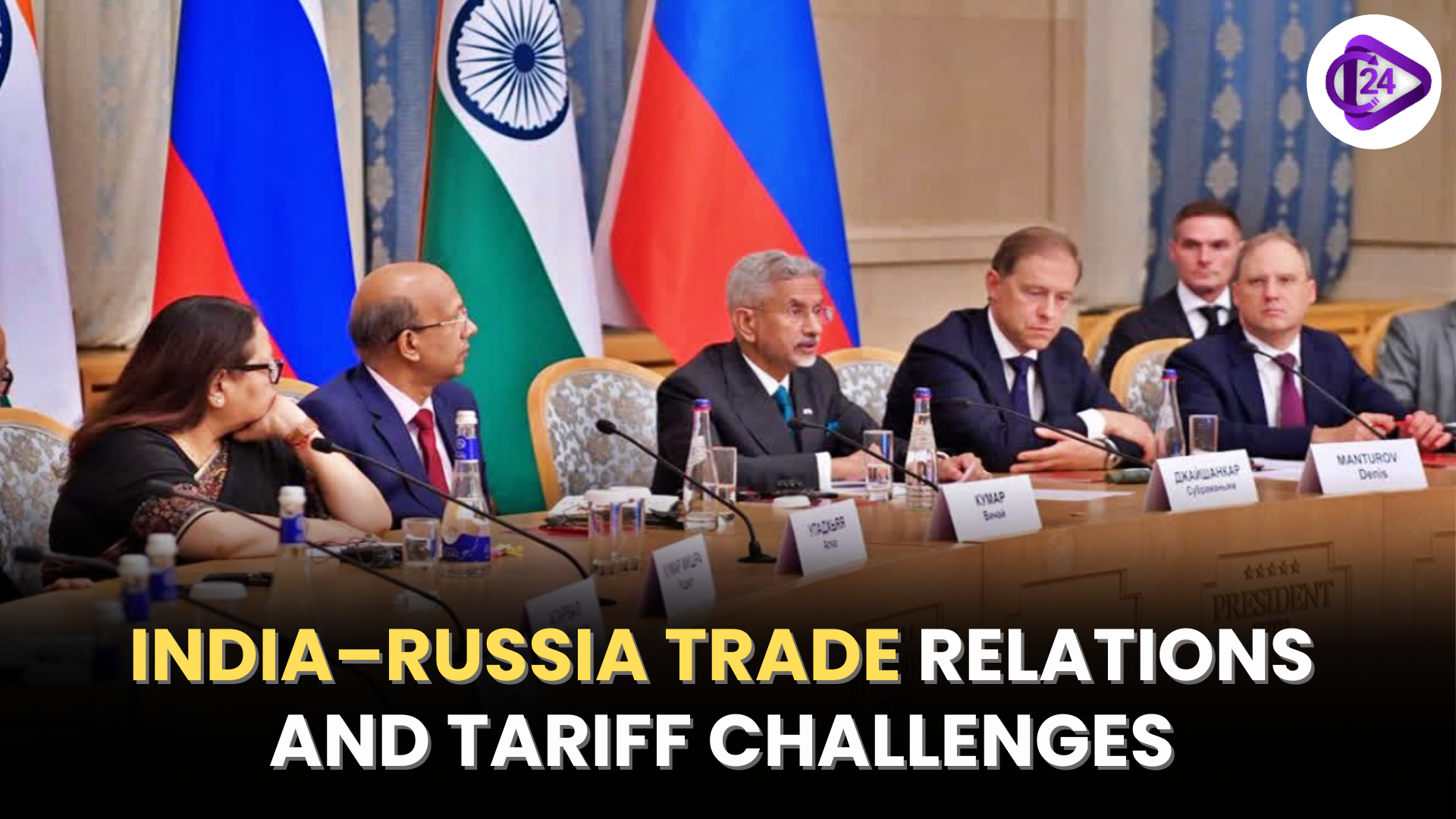
The percentage of votes not cast in UN votes by India has hit an all time high of 44 percent whereas yes votes have been reduced to 56 percent, the lowest since the year 1955. This is a trend that has come up in the wake of global polarisation and complexity of UN resolutions especially since 2019. The history of voting stability in India between 1946 and 2025 recording neutral stands was rife in recent years. According to former representatives of the UN, abstention allows India to exercise the autonomous position without obligations to one or the other option. Abstention serves as a diplomatic instrument because these resolutions usually contain complex and multi-purpose resolutions that contain conflicting clauses.
Context:
-
India has been an active partner in UN resolutions although it was part of consensus periods.
-
Nevertheless, the current level of geopolitical tensions on the global scale has complicated the possibility of clear-cut sides being taken, particularly after 2019.
-
With an eye on emerging as a middle power, India aims to enjoy strategic autonomy and flexibility in its foreign policy that has been enacted through altered voting patterns.
Key Data: India’s UN Voting Trends (1946–2025)
|
Period |
‘Yes’ Votes (%) |
Abstentions (%) |
Notable Trend |
|
1946–1969 |
20–100% (volatile) |
0–40% |
Early fluid stance |
|
1970–1994 |
74–96% |
8–19% |
High support for resolutions |
|
1995–2019 |
75–83% |
10–17% |
Stable and consistent |
|
2020–2025 |
56% (lowest) |
44% (highest) |
Shift towards neutrality |
What Is the Reason Behind the Shift toward Abstention?
-
Global Polarisation on Rise:
-
There is even less possibility of consensus by big powers.
-
The abstention in India is some kind of non-alignment 2.0 policy to counter the superpower tensions.
-
-
Christmas Tree Resolutions:
-
The UN resolutions today put together a package of issues, which are not related to each other, many of which India might not agree with.
-
Case in point: Resolution can authorize pacifying duties and such but with political strings that India is not content with.
-
-
Strategic Outlook of India:
-
The course of abstention also enables India to remain neutral whilst safeguarding the interests of the country.
-
Represents the stance of India as a speaker of the Global South that is not the member of blocs.
-
Provides a diplomatic window to future dealings and dealings of bilateral relations.
-
Conclusion:
The increased rate of abstention that India has taken to the UN is not a case of being undecided, rather an actualization of a strategic realignment to the polarized and multifaceted world order. International resolutions are increasingly gaining politicisation and layers and instead of taking very strong stances, or expressing a definite stance, India is settling on being flexible and playing its own game on the global platform, achieving strategic autonomy.



 Over 700 Armed Forces Personnel Set to Participate in ‘Exercise Bright Star 2025’
Over 700 Armed Forces Personnel Set to Participate in ‘Exercise Bright Star 2025’ India Partners with World Food Programme to Combat Global Hunger
India Partners with World Food Programme to Combat Global Hunger Strengthening Defence Ties: Indian Army Chief General Upendra Dwivedi’s Visit to Algeria
Strengthening Defence Ties: Indian Army Chief General Upendra Dwivedi’s Visit to Algeria India, China Plan to Resume Trade via Shipki-La in Himachal Pradesh
India, China Plan to Resume Trade via Shipki-La in Himachal Pradesh Hawaii’s Kilauea Volcano Erupts Again with 100-Foot Lava Fountains
Hawaii’s Kilauea Volcano Erupts Again with 100-Foot Lava Fountains Iran Conducts Naval Drill Sustainable Power 1404 – First Since War With Israel
Iran Conducts Naval Drill Sustainable Power 1404 – First Since War With Israel NASA Launches AI Model Surya to Predict Space Weather
NASA Launches AI Model Surya to Predict Space Weather Iran launches its first navy drill since war with Israel
Iran launches its first navy drill since war with Israel India–Russia Trade Relations and Tariff Challenges
India–Russia Trade Relations and Tariff Challenges SpaceX Prepares for 10th Starship Test Ahead of NASA Moon Mission
SpaceX Prepares for 10th Starship Test Ahead of NASA Moon Mission






